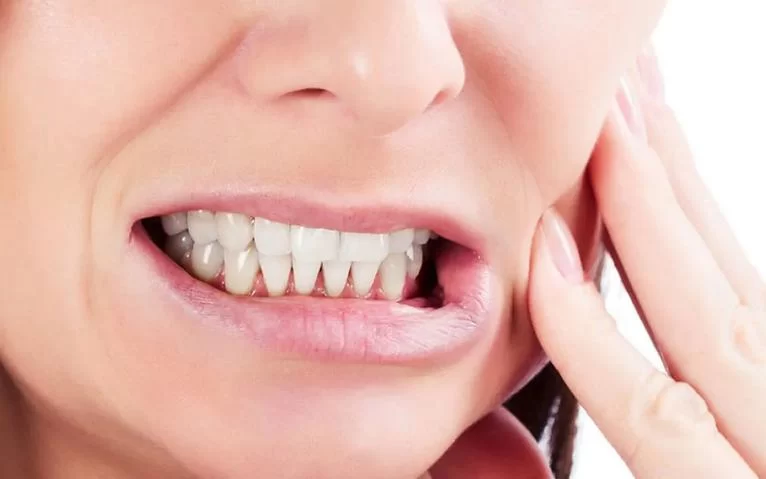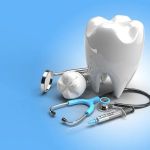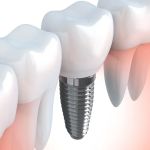
- what-causes-teeth-grinding
- natural-solutions-for-nighttime-bruxism
- lifestyle-and-diet-changes
- mind-body-approach-to-relief
- when-to-seek-professional-help
1. What Causes Teeth Grinding at Night?
Teeth grinding, or bruxism, is often an unconscious habit that occurs during sleep. While it might seem harmless at first, frequent grinding can lead to jaw pain, worn-down teeth, headaches, and even disrupted sleep. Understanding the root causes is the first step toward learning how to prevent teeth grinding naturally at night.
Common triggers include stress, anxiety, misaligned teeth, or even lifestyle choices such as caffeine or alcohol consumption. In some cases, teeth grinding can be a side effect of sleep disorders like sleep apnea. A young mother named Melissa shared on a health forum how she discovered her nightly headaches and jaw soreness were linked to bruxism triggered by work-related stress—something many readers can relate to.
2. Natural Solutions for Nighttime Bruxism
2.1 Herbal Remedies and Essential Oils
One of the gentlest ways to prevent nighttime teeth grinding is through natural calming agents. Chamomile tea before bed, lavender oil diffused in the room, or valerian root supplements can help relax both body and mind. These natural remedies for bruxism aim to reduce stress, which is a significant contributor to the habit.
2.2 Warm Compress and Facial Massage
Applying a warm towel to your jaw muscles before sleeping can help relieve tension. Gentle massage of the jaw and neck muscles can also ease the strain. A user on a wellness blog described how 10 minutes of facial massage combined with breathing exercises significantly reduced her grinding episodes over two weeks.
2.3 Magnesium and Calcium Intake
Mineral deficiencies, particularly magnesium and calcium, can exacerbate muscle tightness. Including leafy greens, nuts, and dairy in your evening meal can improve muscle relaxation. Natural solutions like these don’t just address symptoms—they help your body function at its best.
3. Lifestyle and Diet Changes
3.1 Reducing Stimulants
Caffeine, alcohol, and nicotine can significantly affect your nervous system and sleep patterns. Limiting these substances—especially in the hours leading up to bedtime—is a crucial step in learning how to prevent teeth grinding naturally at night. A night-shift nurse named Diego once shared on a podcast how cutting back on energy drinks led to fewer episodes of morning jaw pain.
3.2 Structured Sleep Routine
Good sleep hygiene matters more than many people realize. Going to bed and waking up at the same time daily helps your body regulate sleep cycles. Consistent, quality sleep supports your nervous system, which can help reduce grinding during the night.
3.3 Stay Hydrated
Dehydration is a lesser-known trigger for muscle cramps and tension—including in the jaw. Keeping well-hydrated throughout the day can lessen the likelihood of involuntary muscle contractions like those involved in bruxism.
4. Mind-Body Approach to Relief
4.1 Meditation and Breathing Techniques
Mental calmness directly affects physical relaxation. Simple breathing exercises, such as box breathing or progressive muscle relaxation, can help calm the nervous system before bed. This is a powerful, non-invasive way to address bruxism from within.
4.2 Journaling and Cognitive Behavior Tools
Stress often hides in our thoughts. By journaling at night, you allow your mind to “offload” worries before sleep. CBT (Cognitive Behavioral Therapy) techniques have also been shown to reduce anxiety and help manage the psychological triggers behind teeth grinding.
4.3 Yoga and Gentle Stretching
Regular yoga sessions that include gentle neck and jaw stretches can release tension from the body and mind. Even five minutes of light stretching before sleep can make a noticeable difference in how tense your jaw feels in the morning.
5. When to Seek Professional Help
While these natural methods can be highly effective, there are times when professional guidance is necessary. If you’ve tried multiple strategies without improvement, or if you’re experiencing severe pain, it may be time to consult a dentist or sleep specialist.
At Dentistry Toothtruth, we understand that every case of bruxism is unique. Whether you're seeking custom-fit night guards, jaw alignment checks, or therapeutic massage referrals, our team is here to help you find the right solution tailored to your needs. Our shop offers well-reviewed natural products and expert-backed advice for those who want to address teeth grinding the natural way.







 MGK Dental0.0 (0 review)
MGK Dental0.0 (0 review) Think Better Life - Orofacial Pain, TMJ & Sleep Disorder Solutions Chicago4.0 (11 review)
Think Better Life - Orofacial Pain, TMJ & Sleep Disorder Solutions Chicago4.0 (11 review) Jin Hahn, DMD4.0 (18 review)
Jin Hahn, DMD4.0 (18 review) Community Dental Care - Maplewood2.0 (224 review)
Community Dental Care - Maplewood2.0 (224 review) Northland Family Dentistry4.0 (111 review)
Northland Family Dentistry4.0 (111 review) Dental365 - Bellmore4.0 (318 review)
Dental365 - Bellmore4.0 (318 review) The Importance of Oral Health Education During Pregnancy for a Healthy Pregnancy
The Importance of Oral Health Education During Pregnancy for a Healthy Pregnancy Best Tips for Brushing Your Teeth Properly for Healthy Gums: Essential Techniques for Oral Health
Best Tips for Brushing Your Teeth Properly for Healthy Gums: Essential Techniques for Oral Health Why Skipping Dental Checkups Can Lead to Bigger Oral Health Problems
Why Skipping Dental Checkups Can Lead to Bigger Oral Health Problems Advantages of Porcelain Dental Restorations
Advantages of Porcelain Dental Restorations How Can Diabetes Cause Tooth and Gum Problems? Preventing and Managing Oral Health Issues
How Can Diabetes Cause Tooth and Gum Problems? Preventing and Managing Oral Health Issues Healthy Habits for Promoting Good Oral Health and Hygiene: Tips for a Healthy Smile
Healthy Habits for Promoting Good Oral Health and Hygiene: Tips for a Healthy Smile